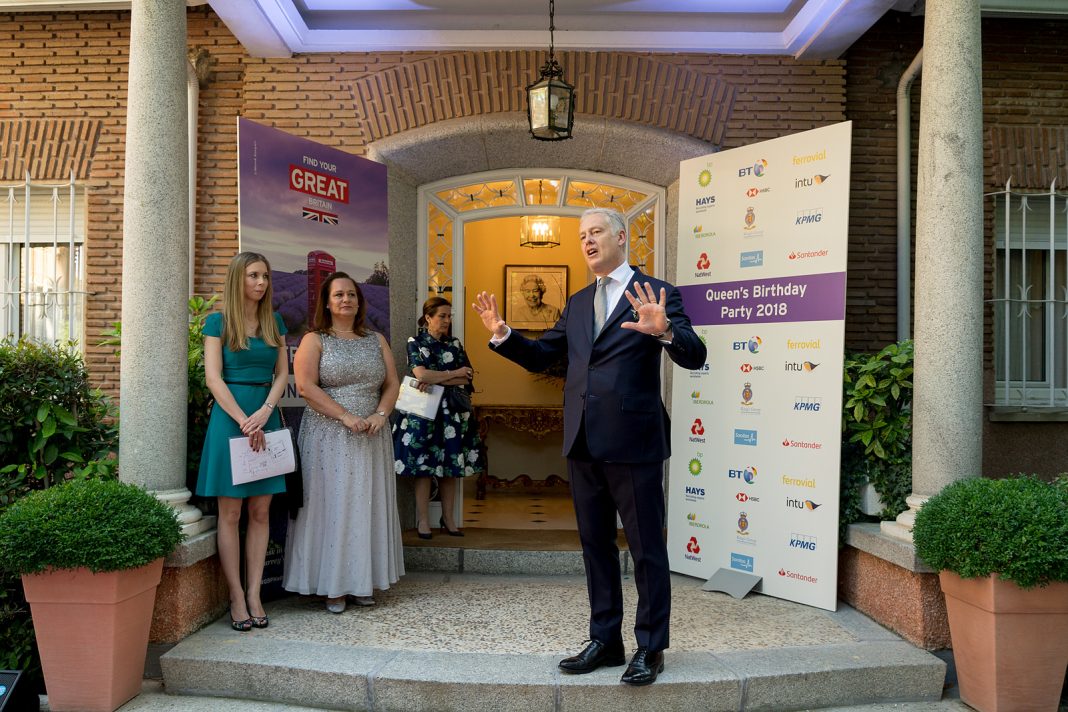I winced when I read an account of a recent Garden Party hosted by the British Ambassador to Spain at his residence in Madrid in honour of the Queen’s birthday. The party was sponsored by a health insurer, an oil company, several banks, an accountancy firm and a communications company to name just a few.
Products consumed at the party were supplied by a maker of pink gin, an ice cream manufacturer, a health insurer, an oil company, a restaurant chain, a producer of tonic water, fish from a Northern Ireland cooperative, a meat processor and a brewery. It made me wonder if the British Government (the taxpayer) had actually paid for anything; some will say that this is the point.
We are told that times are hard and the effects of the recession are still with us, but have you noticed that there always seems to be enough money around for those prestige projects? Then, of course, there is that “Brexit dividend” that we all keep hearing about; surely that would have easily have paid for a glass of cava and a cucumber sandwich without going ‘cap in hand’ to a range of British and Spanish businesses?
Yes, I am fully aware of the argument that such events “showcase British drive and ingenuity” at a time when the UK needs to demonstrate to the world that, despite Brexit, it is still open for business, but is this really the way to do it?
I am concerned about the growing sponsorship deals by commercial companies intruding into what should be the business of the state. Surely, we all know that there is no such thing as a free lunch. Everything comes with a price tag and purpose, albeit often hidden. By accepting sponsorship of such events there is an assumption that the products and services provided by a company are endorsed and recommended by government and its agencies at the expense of others, which should not be the case.
Many years ago, I worked briefly as a civil servant, and it was always made very clear that any interaction between the government and the commercial sector should be at arm’s length to avoid being seen as bias in favour of one company at the expense of another. Over the years, we have seen considerable erosion of such lofty principles, with blurring and, indeed, merging of commercial and government business.
A few days ago, the British Consulate asked if I could help to publicise an event for expats on the island. Ostensibly, it was to be about Brexit, which I am sure would be very helpful for those expats who have not yet left the island in a bid to escape the summer heat. It was only when I checked on Facebook, that I noticed that it was to be sponsored by a currency exchange company, albeit with a free drink and tapas. I realised that, once again, such sponsorship is potentially more about promoting the commercial activities of a business, rather than unbiased information for expats.
I am aware of similar events for expats sponsored by a group of financial advisors; there is probably a chain of fish and chip restaurants and an online bookies already lined up to sponsor future events.
By allowing a private company to advertise and promote an event under the auspices of the British Consul, there is an implication that the UK Government endorses their services. The currency exchange company is probably staffed by perfectly splendid and honourable people with lofty company ideals, although I note that their exchange rates are nowhere near as advantageous as those that I currently get from two rival companies, who I guess were not asked to sponsor this event.
As they say, there is no such thing as free tapas, which is probably the reason why their exchange rate is not as good as it could be.
No doubt my cynicism will be rewarded with a sharp exchange of views justifying commercial sponsorship of the event on the grounds of the shrinking size of Foreign Office coffers. Despite this, I know that I am not alone in being concerned about the blurring of commercial interests and the public good. I can only imagine what my superiors in the civil service department that I worked for would have to say about that.
I have considerable admiration for the work of the Foreign Office, its embassies and consulates in its protection, advice and support for UK travellers, businesses and expats around the world. Much of its professionalism has been based upon impartiality, and an insistence upon being seen to do the right thing.
Might I suggest a move away from freebies provided by commercial companies and instead to continue to focus with integrity upon providing unbiased advice and support to UK citizens and businesses during this disturbing period of Brexit fudge. The implied endorsement of a particular commercial activity is not the business of government and is certainly not the business of the Foreign Office and its consular services.
If you enjoyed this article, take a look at my websites: http://barriemahoney.com and http://thecanaryislander.com or read my latest book, ‘Living in Spain and the Canary Islands’ (ISBN: 9780995602724). Available in paperback, as well as Kindle editions.
Join me on Facebook: @barrie.mahoney
© Barrie Mahoney





